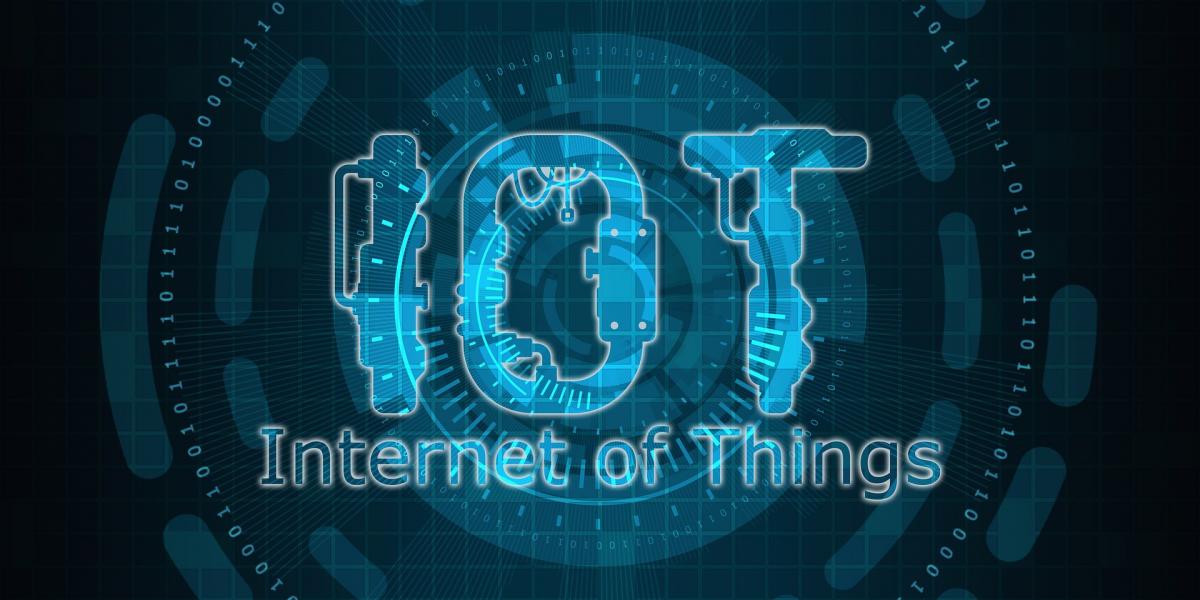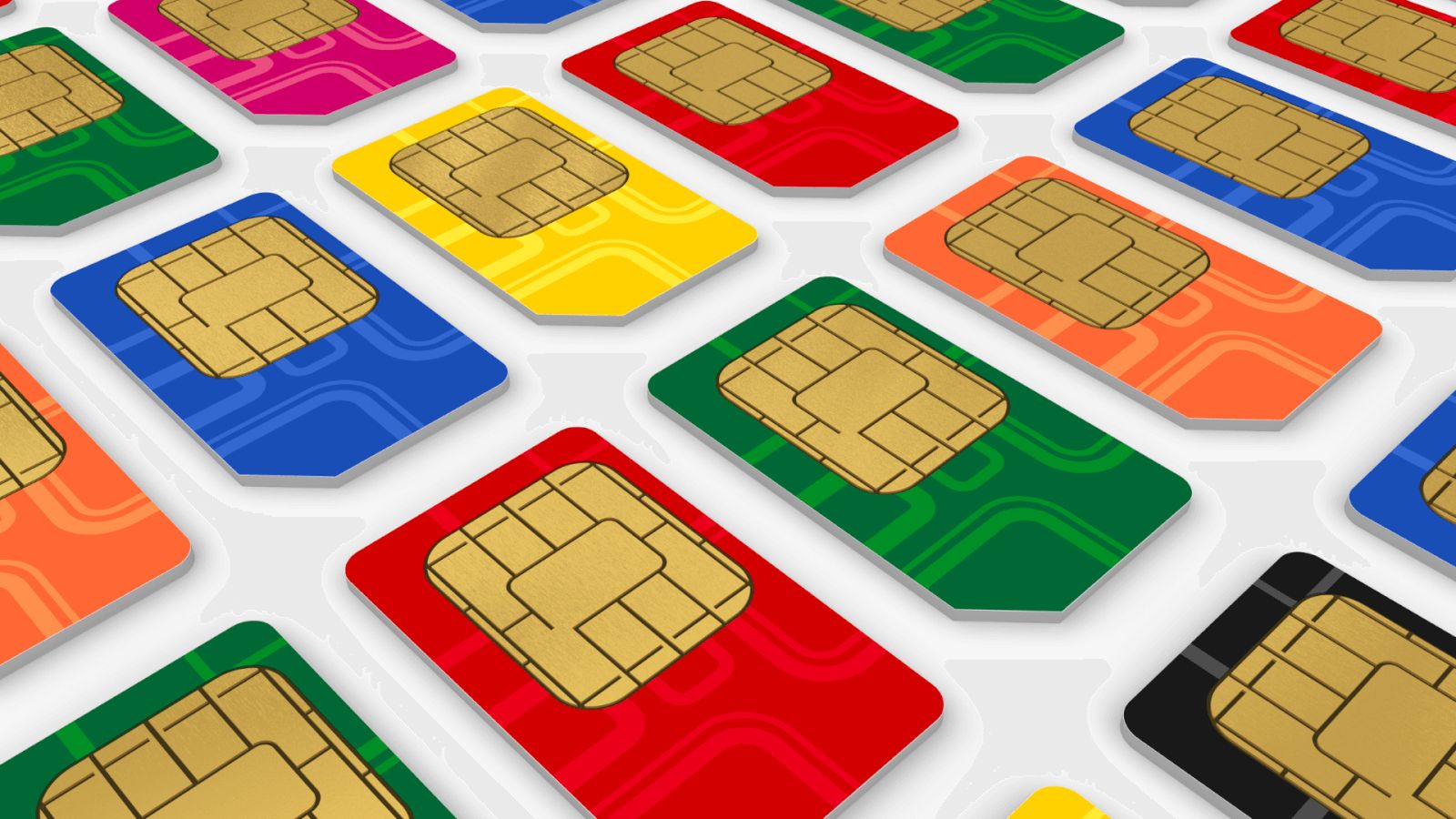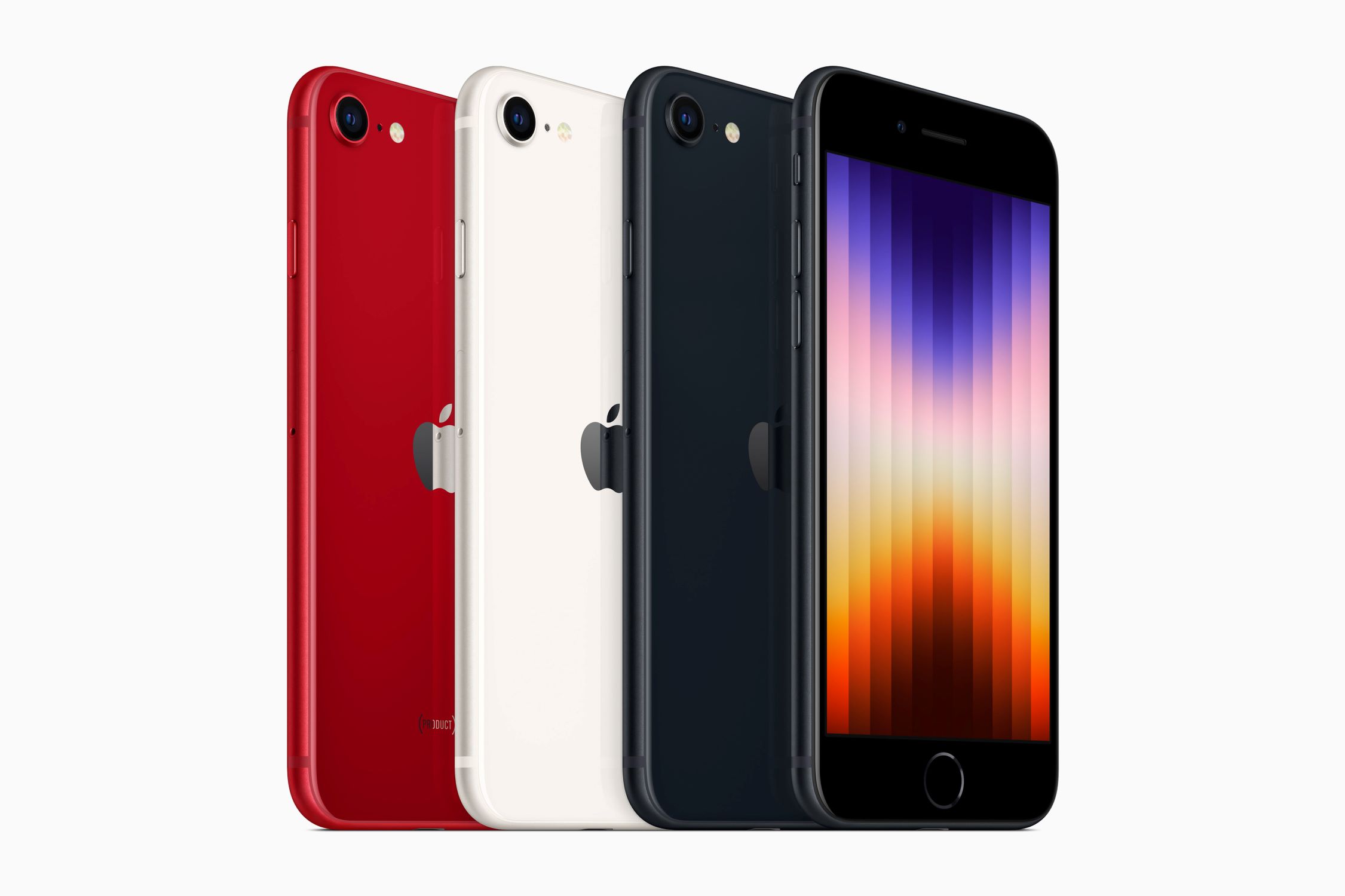What Is an IoT SIM Card?
An IoT SIM card, also known as a Machine-to-Machine (M2M) SIM card or a data-only SIM card, is a specialized type of SIM card designed specifically for Internet of Things (IoT) devices. Unlike traditional SIM cards used in smartphones, IoT SIM cards provide connectivity tailored for IoT applications.
IoT SIM cards are used to connect IoT devices, which are devices capable of transmitting and receiving data over the internet. Examples of IoT devices include smart home devices, wearable technology, industrial sensors, and tracking devices. These devices rely on a reliable and secure network connection to send and receive data.
IoT SIM cards differ from regular SIM cards in several ways. Firstly, they are usually smaller in size to fit into compact IoT devices. This allows IoT devices to be more discreet and enables their integration into various objects and equipment. Additionally, IoT SIM cards often come with enhanced security features to protect sensitive data transmitted by IoT devices.
Another key difference is that IoT SIM cards are data-only SIM cards. Unlike regular SIM cards, they do not support voice or SMS services. This is because IoT devices primarily rely on data connections to communicate with other devices or transmit data to cloud servers.
IoT SIM cards operate on cellular networks, offering global coverage and reliable connectivity. They can support different network technologies such as 2G, 3G, 4G, and even emerging 5G networks, depending on the capabilities of the IoT device and the network infrastructure in a specific region.
In summary, an IoT SIM card is a specialized SIM card designed for IoT devices. It provides a data-only connection, smaller form factor, enhanced security, and global coverage, making it ideal for powering IoT applications across various industries.
How Does an IoT SIM Card Work?
An IoT SIM card is an integral component that enables IoT devices to connect to cellular networks and communicate with other devices or transmit data to the cloud. The functioning of an IoT SIM card can be summarized in the following steps:
- Device Identification: When an IoT device is powered on, it establishes a connection with the IoT SIM card installed in it. The SIM card contains a unique International Mobile Subscriber Identity (IMSI), which serves as the device’s identification on the network.
- Network Registration: The IoT device and the SIM card then communicate with the nearest cellular tower to register on the network. The SIM card provides the necessary credentials, such as the IMSI and authentication information, to authenticate the device on the network.
- Data Transmission: Once the IoT device is registered on the network, it can begin transmitting and receiving data. The device sends data packets over the cellular network using protocols like TCP/IP or MQTT, depending on the application requirements. The IoT SIM card ensures that the data packets are transferred securely and efficiently.
- Network Authentication: Periodically, the IoT SIM card and device authenticate themselves with the network to maintain the connection. This helps ensure the security and integrity of the data being transmitted. The continuous authentication also helps in minimizing unauthorized access to the network.
- Data Billing and Management: IoT SIM cards are usually associated with data plans or subscriptions provided by IoT SIM card providers. These plans determine the data usage limits, billing cycles, and other parameters. The IoT SIM card keeps track of the data usage and communicates with the network to manage the billing and subscription aspects of the IoT device.
Overall, an IoT SIM card plays a vital role in establishing and maintaining the connection between an IoT device and the cellular network. It facilitates secure data transmission, device authentication, and data management, allowing IoT devices to operate efficiently and effectively in various IoT applications.
Benefits of Using an IoT SIM Card
IoT SIM cards offer several benefits that make them an essential component for IoT deployments. Here are some key advantages of using an IoT SIM card:
- Global Coverage: IoT SIM cards provide global coverage, allowing IoT devices to connect to cellular networks and transmit data worldwide. This enables businesses to deploy IoT solutions in various locations without worrying about network availability or compatibility.
- Cost-Effective Connectivity: IoT SIM cards come with data plans specifically tailored for IoT use cases. These plans often offer cost-effective pricing structures, with options for low data consumption or bulk data packages. This makes IoT connectivity more affordable, especially for deployments involving a large number of devices.
- Flexibility and Scalability: IoT SIM cards provide flexibility and scalability for IoT deployments. Businesses can easily activate or deactivate SIM cards as per their requirements, making it convenient to add or remove devices from the network. This scalability allows businesses to expand their IoT infrastructure without significant overhead costs.
- Secure Data Transmission: IoT SIM cards prioritize data security, providing encryption and authentication mechanisms to protect data transmitted between the IoT devices and the cloud. This ensures that sensitive information is safeguarded from unauthorized access and prevents data breaches.
- Reliable and Continuous Connectivity: IoT SIM cards ensure continuous connectivity, allowing IoT devices to transmit and receive data without interruption. They are designed to handle machine-to-machine communication, offering reliable performance even in challenging network environments.
- Flexible Network Technologies: IoT SIM cards support a range of network technologies, including 2G, 3G, 4G, and emerging 5G networks. This flexibility allows businesses to choose the most suitable network technology for their IoT applications, balancing factors like coverage, data speed, and device compatibility.
Overall, IoT SIM cards provide numerous benefits, including global coverage, cost-effective connectivity, flexibility, data security, reliable connectivity, and support for multiple network technologies. By leveraging these advantages, businesses can unlock the full potential of their IoT deployments and drive innovation in various industries.
Common Use Cases for IoT SIM Cards
IoT SIM cards play a crucial role in enabling connectivity for a wide range of IoT devices and applications. Here are some common use cases where IoT SIM cards are utilized:
- Fleet Management: IoT SIM cards are widely used in fleet management systems, allowing real-time tracking of vehicles, monitoring driver behavior, and optimizing route planning. The SIM cards enable seamless communication between connected vehicles and the fleet management platform, providing accurate and up-to-date information.
- Smart Metering: IoT SIM cards are essential in smart metering applications, where they enable remote reading of utility meters such as electricity, gas, and water meters. These SIM cards facilitate secure and efficient transmission of metering data to utility companies, eliminating the need for manual meter reading and improving operational efficiency.
- Asset Tracking: IoT SIM cards are utilized in asset tracking solutions to keep track of valuable assets, such as shipping containers, equipment, or high-value inventory. These SIM cards allow businesses to monitor the location and status of assets in real-time, enhancing supply chain visibility and minimizing losses due to theft or misplacement.
- Environmental Monitoring: IoT SIM cards are used in environmental monitoring applications that involve tracking and analyzing environmental conditions in various settings. They enable IoT devices such as weather sensors, air quality monitors, and water quality sensors to transmit data for analysis, aiding in environmental research, pollution control, and predictive analytics.
- Smart Agriculture: IoT SIM cards play a critical role in smart agriculture applications, where they enable connectivity for IoT devices such as soil moisture sensors, weather stations, and automated irrigation systems. These SIM cards ensure that the agricultural data collected is transmitted to cloud-based platforms for analysis, enabling farmers to make data-driven decisions and optimize crop yields.
- Industrial Automation: IoT SIM cards are utilized in industrial automation applications to enable communication between IoT devices and control systems. They facilitate real-time data exchange, remote monitoring, and control of industrial processes, improving efficiency, reducing downtime, and enhancing overall productivity.
These are just a few examples of the common use cases where IoT SIM cards are employed. The versatility and connectivity provided by IoT SIM cards make them essential for powering IoT applications across industries, enabling innovation, efficiency, and improved decision-making.
Choosing the Right IoT SIM Card Provider
When it comes to selecting an IoT SIM card provider, there are several factors to consider to ensure the best connectivity and service for your IoT deployments. Here are some important factors to keep in mind:
- Coverage: Evaluate the coverage offered by the IoT SIM card provider. Ensure they have a strong network presence and reliable coverage in the regions where your IoT devices will be deployed. Take into account both domestic and international coverage if your IoT solution requires global connectivity.
- Network Technologies: Consider the network technologies supported by the provider. Determine if they offer compatibility with the required network technologies, such as 2G, 3G, 4G, or emerging 5G networks. Choose a provider that can support the network technology requirements of your IoT devices.
- Data Plans and Pricing: Assess the data plans and pricing structures offered by the provider. Look for plans that align with your data consumption needs and budget. Consider factors such as data limits, overage charges, and flexibility for scaling up or down as your IoT deployment evolves.
- Security: Ensure that the IoT SIM card provider prioritizes data security. Inquire about the security measures they have in place, such as encryption and authentication protocols, to protect your IoT data from unauthorized access or cybersecurity threats.
- Scalability and Flexibility: Consider the scalability and flexibility provided by the IoT SIM card provider. Check if they offer easy activation and deactivation of SIM cards, as well as the ability to manage data plans and subscriptions efficiently. This will enable you to scale your IoT deployment and adapt to changing requirements easily.
- Customer Support: Evaluate the level of customer support provided by the IoT SIM card provider. Ensure they offer responsive and knowledgeable support to address any issues or concerns that may arise during your IoT deployment.
Additionally, consider reading reviews and case studies to gauge the reputation and reliability of the IoT SIM card provider. Look for feedback from other businesses in your industry who have used their services.
By carefully evaluating these factors and conducting thorough research, you can choose the right IoT SIM card provider that meets your specific needs. This will ensure seamless connectivity, reliable service, and optimal performance for your IoT devices and applications.
Considerations for Implementing IoT SIM Cards
Implementing IoT SIM cards requires careful planning and consideration to ensure a successful deployment. Here are some key factors to keep in mind when implementing IoT SIM cards:
- Device Compatibility: Ensure that your IoT devices are compatible with the IoT SIM cards you choose. Consider factors such as SIM card size, network compatibility, and device-specific requirements to ensure seamless integration and functionality.
- Data Consumption: Assess the data consumption patterns and requirements of your IoT devices. Consider factors such as data transmission frequency, data volume, and real-time data needs. This will help determine the appropriate data plans and ensure reliable connectivity without exceeding data limits or incurring excessive costs.
- Roaming: If your IoT devices operate in multiple regions or countries, consider the roaming capabilities offered by the IoT SIM card provider. Ensure that they have partnerships with reliable roaming partners to provide uninterrupted connectivity and avoid any potential roaming restrictions or excessive charges.
- Security and Privacy: Implement appropriate security measures to protect the data transmitted by your IoT devices. This includes using secure communication protocols, implementing encryption, and ensuring that the IoT SIM cards and devices have adequate authentication mechanisms to prevent unauthorized access or data breaches.
- Monitoring and Control: Implement tools and systems to monitor and manage your IoT SIM cards effectively. This includes real-time monitoring of data consumption, managing data plans and billing cycles, and proactive troubleshooting to address any connectivity issues or abnormal data usage patterns.
- Backup and Redundancy: Consider implementing backup and redundancy measures to ensure continuous connectivity in case of network disruptions or SIM card failures. This can include implementing dual SIM card slots on devices, having redundant connectivity options, or utilizing failover mechanisms to maintain uninterrupted operation.
- Regulatory Compliance: Ensure that your IoT SIM card implementation complies with relevant regulatory and legal requirements. This includes considerations such as data protection laws, privacy regulations, and any specific industry standards or certifications that may be applicable to your IoT application.
- Scalability and Future Growth: Plan for scalability and future growth of your IoT deployments. Choose an IoT SIM card provider that can accommodate your growing needs and scale with your business. Consider factors such as the ability to easily add or remove SIM cards, flexible data plans, and the provider’s reputation for supporting scalable IoT solutions.
By taking these considerations into account, you can ensure a smooth implementation of IoT SIM cards and optimize the connectivity and performance of your IoT devices. Proper planning and careful consideration will ultimately contribute to the success and effectiveness of your IoT deployment.
Conclusion
IoT SIM cards are an essential component for enabling connectivity in IoT devices and applications. Their specialized design, global coverage, and data-only capabilities make them ideal for powering various IoT use cases across industries.
In this article, we explored what IoT SIM cards are and how they work. We highlighted the benefits of using IoT SIM cards, such as global coverage, cost-effective connectivity, security, and flexibility. Additionally, we discussed common use cases for IoT SIM cards, including fleet management, smart metering, asset tracking, environmental monitoring, smart agriculture, and industrial automation.
When choosing an IoT SIM card provider, it is crucial to consider factors such as coverage, network technologies, data plans, security, scalability, and customer support. Furthermore, implementing IoT SIM cards requires careful consideration of device compatibility, data consumption, roaming, security, monitoring and control, backup and redundancy, regulatory compliance, and scalability.
By understanding these considerations and making informed decisions, businesses can successfully implement IoT SIM cards to unlock the full potential of their IoT deployments. IoT SIM cards provide reliable and secure connectivity, enabling real-time data exchange, remote monitoring, and optimization of IoT devices and applications.
As the Internet of Things continues to grow and evolve, the role of IoT SIM cards will become even more critical. By embracing this technology and leveraging the benefits it offers, businesses can drive innovation, enhance operational efficiency, and create new opportunities across various industries.
























